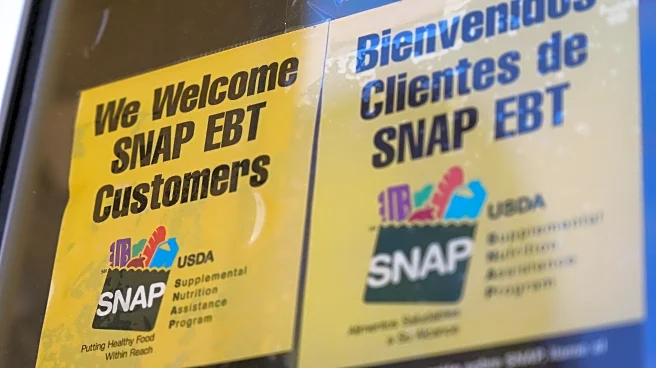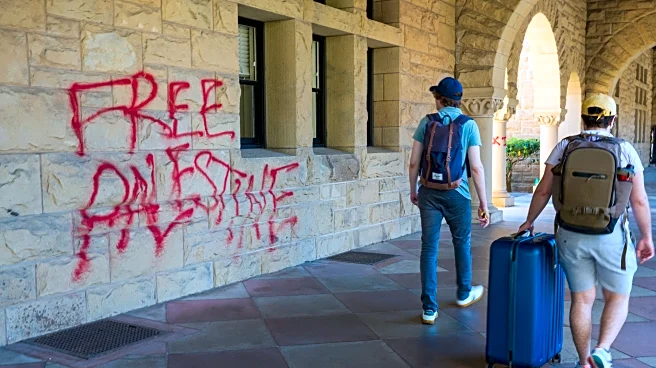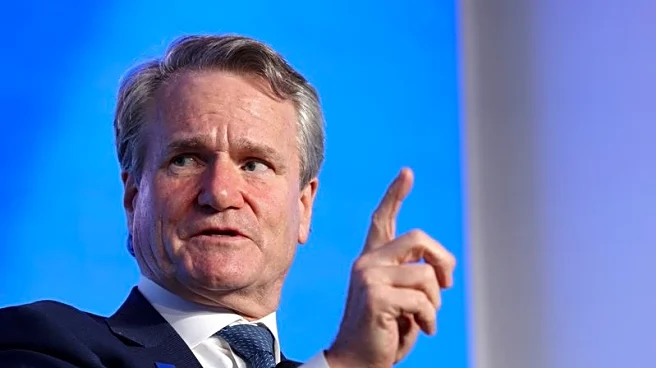What's Happening?
The Trump administration has issued a directive to states, demanding the reversal of full Supplemental Nutrition Assistance Program (SNAP) payments for November. This action follows a federal judge's order requiring the administration to pay full SNAP benefits
amid the ongoing government shutdown. The U.S. Department of Agriculture (USDA) warned states that issuing full payments was unauthorized and instructed them to distribute only 65% of the benefits. States failing to comply may face financial penalties, including the cancellation of federal administration cost shares or liability for overissuances. The directive has added to the confusion surrounding the SNAP program, which serves over 42 million Americans.
Why It's Important?
The Trump administration's directive to reduce SNAP payments during a government shutdown has significant implications for millions of Americans relying on food assistance. The move could exacerbate food insecurity, particularly for low-income families who depend on these benefits. The administration's stance has sparked criticism from political figures, including Sen. Amy Klobuchar, who condemned the decision as unnecessarily harsh. The situation highlights the broader political and legal battles over federal funding and social welfare programs, with potential impacts on public policy and the economy.
What's Next?
The Supreme Court's temporary block on the administration's efforts to halt full SNAP payments opens the door for further legal challenges. States may seek clarity on how to manage the directive, while advocacy groups and political leaders could push for legislative solutions to ensure continued support for SNAP recipients. The USDA's expectations for states to claw back unauthorized payments remain unclear, potentially leading to further administrative and legal complications.
Beyond the Headlines
The directive raises ethical concerns about the government's role in supporting vulnerable populations during economic hardships. The decision to reduce SNAP benefits amid a shutdown may reflect broader ideological debates over the size and scope of government assistance programs. Long-term, this could influence public opinion and policy decisions regarding social welfare and economic inequality.

















